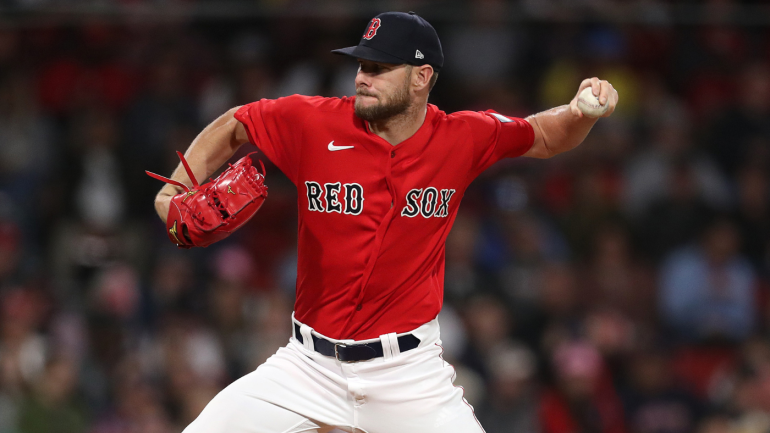
The Atlanta Braves have acquired storied left-handed starter Chris Sale and $17 million in cash considerations from the Boston Red Sox in exchange for young infielder Vaughn Grissom. The teams announced the trade on Saturday afternoon.
Sale, 34, waived his no-trade clause to facilitate the deal. He's slated to make $27.5 million in 2024, the final guaranteed year of his contract. The Braves will be responsible for $10.5 million of that amount. They'll then hold a club option worth $20 million on Sale's services for the 2025 campaign.
Below, CBS Sports has offered analysis and grades on the deal for both teams.
Braves grade: A
Sale is one of the most accomplished active pitchers in the majors. He's a seven-time All-Star who also received Cy Young Award consideration in seven consecutive seasons from 2012-18. More recently, he's been hampered by injuries that limited him to just 11 appearances from 2020-22. Fortunately, his health took a turn for the better last year, as he started 20 times and amassed a 4.30 ERA (106 ERA+) and a 4.31 strikeout-to-walk ratio.
Teams these days focus on two traits in particular with pitchers: suppressing quality of contact and generating empty swings. Sale can still do both at above-average clips thanks to his 94 mph fastball and signature slider. Indeed, he ranked in the 73rd percentile or better in both average exit velocity against and whiff rate, according to Statcast's calculations. If you knew nothing else about Sale, you'd probably feel decent about his chances of remaining a plus contributor.
That's good news for the Braves, who will insert Sale into a rotation that also includes Spencer Strider, Max Fried, and Charlie Morton. On the other hand, you might feel uneasy about Atlanta -- a team undone last October by ill-timed injury problems -- adding yet another starter with durability concerns. In an ideal world, they probably would've landed someone like Dylan Cease or Corbin Burnes instead.
The catch is that certainty -- or, when it comes to pitchers, the illusion of it -- costs more. Grissom, so clearly without country on Atlanta's depth chart, would not alone have netted either Cease or Burnes. Maybe the Braves should have ponied up -- if, that is, their farm system was deemed good enough to draw from by the White Sox and/or Brewers -- but you can understand why they took this route instead.
Red Sox grade: A
Give new baseball operations boss Craig Breslow credit. He's willing to make a bold move.
Grissom, 23 on Jan. 5, appeared to be the Braves' shortstop of the future at this time last year. Those expectations had been set after an introduction to the majors that saw him post a 119 OPS+ in 41 games in 2022. Alas, rather than take the reins where departed free agent Dansby Swanson left them, Grissom instead spent most of the season in Triple-A after struggling both at the plate and in the field.
Grissom batted .330/.419/.501 on the farm, providing ample reason to think he'll still provide value with his bat. Defensively, it seems like a settled issue that he's not capable of being a starting shortstop. The Red Sox will presumably plop him down at second base (with Trevor Story sticking at shortstop) and let him do his thing -- an approach that should work in both his and their favor.
Given that Grissom has oodles more team control remaining -- and won't clear league-minimum compensation for some time to come -- it's fair to write that this is a move for the future that can pay dividends in the present. These Red Sox aren't immediate title threats like the Braves are, so that's a sensible approach in our estimation.
The Red Sox will have to again sort out their rotation situation following Sale's departure. On Friday, Boston signed veteran starter Lucas Giolito to a two-year contract with the hope that he can bounce back from a down year. Breslow now has more reason to dip into the free-agent market again.


















